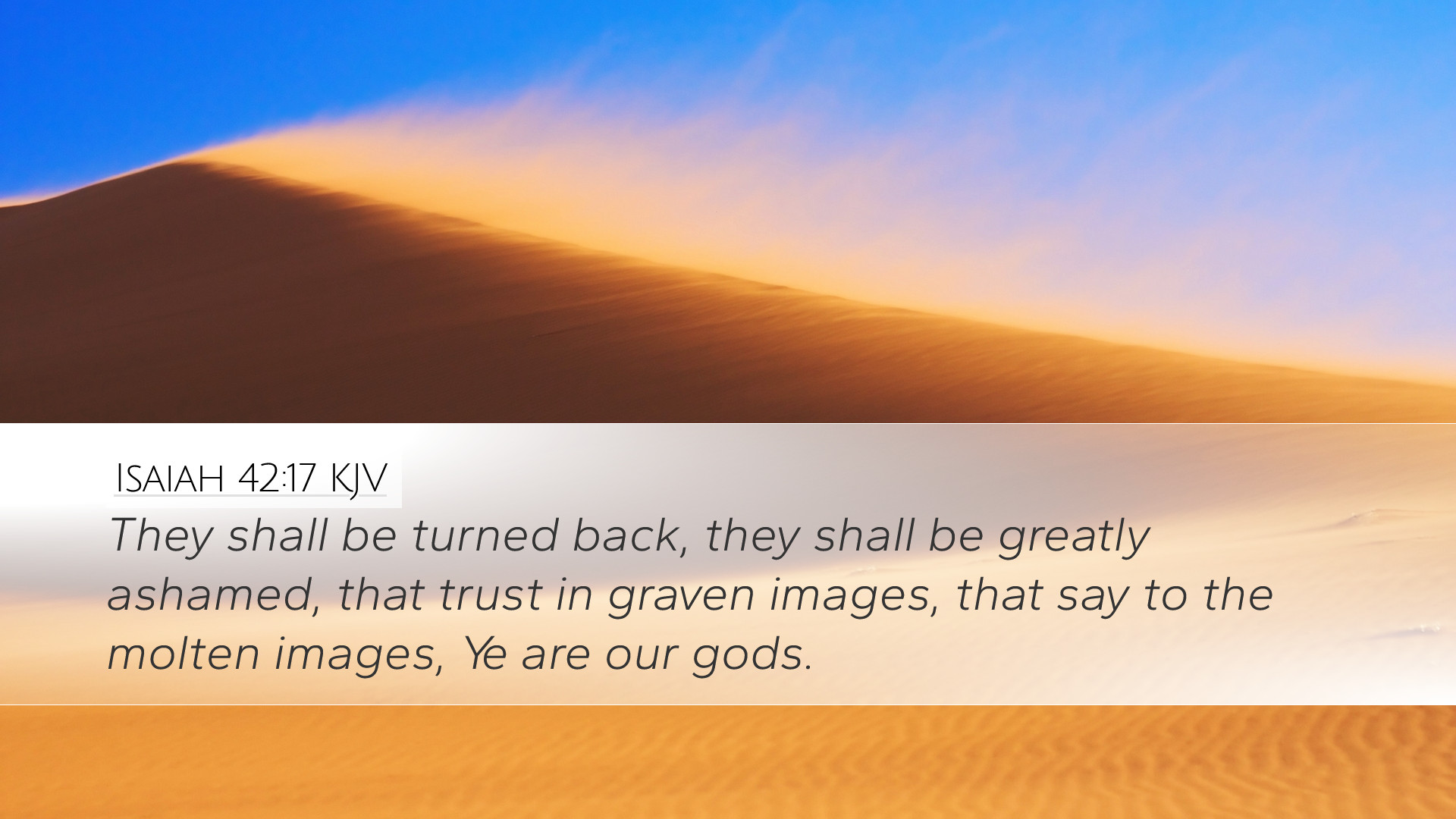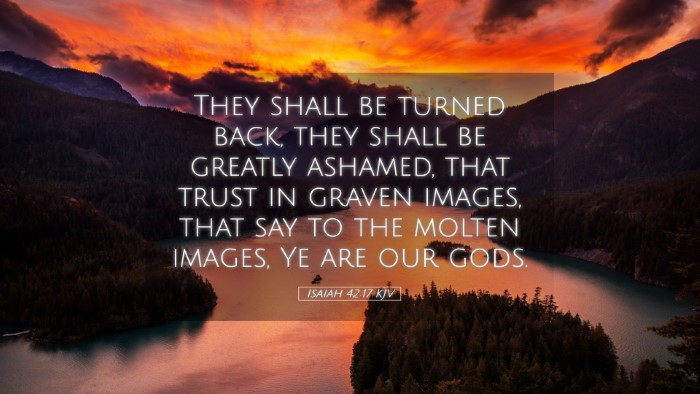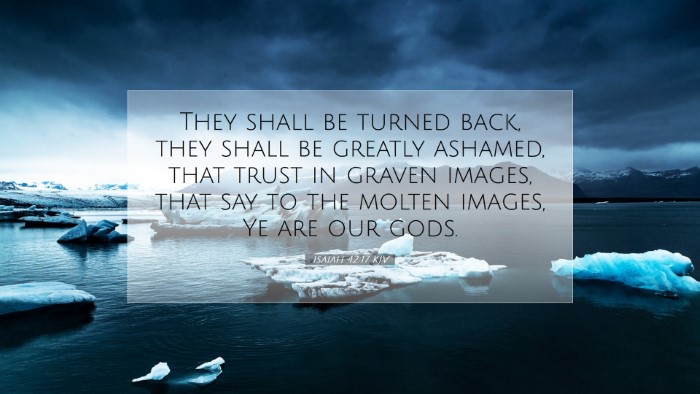Commentary on Isaiah 42:17
Isaiah 42:17: "They shall be turned back, they shall be greatly ashamed, that trust in graven images, that say to the molten images, Ye are our gods."
Contextual Overview
The Book of Isaiah is a profound prophetic text that encompasses themes of judgment, restoration, and hope. Chapter 42 is part of the Servant Songs, which highlight the mission and qualities of the Servant of the Lord. In this verse, the prophet contrasts the fate of those who trust in false gods with the ultimate triumph of the Servant of the Lord.
Theological Insights
This verse speaks powerfully against idolatry. Those who trust in "graven images" are promised a future filled with shame. The idols, crafted by men's hands, cannot save nor provide any real help, emphasizing the impotence of created things in contrast to the Creator. The shame is not merely social but spiritual, indicating a loss of honor before God.
Insights from Public Domain Commentaries
-
Matthew Henry:
Henry emphasizes the futility of idolatry. He notes that those who place their trust in these images shall face a stark reality—they will be turned back. This implies a reversal of expectation, where hopes placed in false gods will lead to disappointment. Henry’s exposition points to the broader understanding of God’s sovereignty over all nations and deities.
-
Albert Barnes:
Barnes interprets this verse to mean that the judgments of God will come upon those who worship idols. He highlights that the "greatly ashamed" indicates a profound realization of their error and deceit in trusting in created things instead of the living God. Barnes elaborates on the idea that such shame is integral to repentance and turning back to God.
-
Adam Clarke:
Clarke provides a deep analysis of the idolatrous context of the original audience. He describes how "graven images" and "molten images" are reflections of human folly, as they represent a rejection of the truth. Clarke’s insights encourage an understanding of the spiritual implications of idolatry—not merely physical but psychological and relational estrangement from God.
The Contrast of Trust
A key theme in this verse is the contrast of trust. On one side are the idolaters, who place their faith in lifeless images. On the other side stands the faithful who rely on the one true God. This dichotomy calls for introspection among those claiming faith—where do we place our trust? Is it in transient, earthly things or in the everlasting God?
Application for Today
The message in Isaiah 42:17 is profoundly applicable to modern readers, especially in a world rife with distractions that can become idols. These can range from material possessions to social status, technology, or even relationships. The verse challenges individuals and congregations to evaluate their own "gods."
As pastors and theologians, this scripture serves as a reminder to guide congregations away from the allure of modern idolatry and towards a vibrant relationship with God. The promise of shame for those who trust in images also serves as a call to repentance for believers who may find their hearts drawn away from God’s truth.
Encouragement and Hope
While the message of Isaiah 42:17 is one of judgment against idolatry, it also glimmers with hope. The call to trust in God implies that those who turn away from their idols and seek Him will be met with grace. The narrative framed within Isaiah portrays God’s willingness to forgive and restore, promising that the faithful shall not be turned back.
Conclusion
Isaiah 42:17 serves as a powerful reminder of the dangers of idolatry and the importance of placing our trust in the living God. The reflections from Matthew Henry, Albert Barnes, and Adam Clarke enrich our understanding, urging us to confront the idols in our lives and to encourage others to do the same. As we recognize the futility of man-made gods, we are directed towards the ultimate hope found in Christ, the servant described in Isaiah. This hope calls us to faithfully worship the Creator who is able to save and restore.


